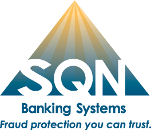 When you hear the phrase corporate social responsibility, you may think about a company’s philanthropy and volunteer efforts. You may think about the importance of drafting and following a CSR for branding purposes, or you may even shrug off the idea as an unimportant, overblown buzzword. On some level, corporate social responsibility is all of those things and more.
When you hear the phrase corporate social responsibility, you may think about a company’s philanthropy and volunteer efforts. You may think about the importance of drafting and following a CSR for branding purposes, or you may even shrug off the idea as an unimportant, overblown buzzword. On some level, corporate social responsibility is all of those things and more.
Surprisingly, there’s a direct connection between a company’s CSR and its level of fraud — companies with the most ethical CSR plans have the lowest level of fraud. If you run a financial institution, this correlation should pique your interest immediately.
The Study
Written by Maretno Agus Harjoto, “Corporate Social Responsibility and Corporate Fraud” was published in Volume 13, Issue 4 of the Social Responsibility Journal in 2017. An instructor from the Graziadio School of Business and Management, Pepperdine University, Harjoto closely examined data from 152 criminal cases of corporate fraud, and he discovered that companies with strong CSR statements had lower levels and reduced severity of corporate fraud.
Essentially, the study found that CSRs reflect the moral values of managers, and when managers commit to strong ethical values as outlined in a CSR, they become less likely to commit fraud. Beyond that, the CSR also informs the corporate culture as a whole, and as a result, staff are also less likely to commit fraud in these environments.
Effective CSRs
In the above study, the researchers found that the most effective CSRs tended to focus on commitment to the following concepts:
- Community
- Employees
- Environment
- Products
In other words, corporations with low levels of corporate fraud are committed to doing the best possible by their community and their employees as well as the environment. They also pride themselves on creating quality, ethical products or services.
Building a Corporate Social Responsibility Plan
If your financial institution doesn’t have a CSR plan yet or if you want to strengthen your existing CSR, you may want to start from the bottom. Rather than getting together a group of managers or a board of directors to talk about your plan, consider gathering a diverse group of employees from every level of your institution and potentially even a few customers. Then, let the brainstorming begin.
Try to identify what’s important to you and outline how to prioritize those ideals. For instance, if community is important to you, you may want to donate a certain percentage of your profits to local initiatives, give employees a paid day off per month to do volunteer work in the community, or develop a company-wide volunteer project designed to improve your local community.
You may need to meet a few times to solidify your plan and ensure it reflects your mission statement. In fact, some companies end up re-drafting their mission statements as they make a greater commitment to social responsibility. But once you have the plan, you need to start communicating about it. Develop a plan to let your staff know about your CSR, but also consider doing some public relations around your plan. Remember, customers want to trust their financial institutions, and if you share your CST, they may feel a greater sense of trust toward your organization as a whole.
Fighting External Fraud
Ideally, when you’re drafting a CSR for a financial institution, you should also think about your responsibilities to your clients. They trust you with their money, and you probably work with the Federal Deposit Insurance Corporation (FDIC) to insure their funds. Beyond that, however, you may also want to think about additional ways you can safeguard their money — education is key in this process. If your clients know about popular types of fraud, they are less likely to fall prey to it.
However, the trust between a financial institution and a customer goes further than money. You also have a lot of their information, and you may want to outline some of your data security efforts in your CSR. For instance, you may want to note that you’re committed to safeguarding data, you may want to outline goals related to how often you upgrade your software or the portion of your budget that you devote to data security, and you may want to share details about what you will do if their details are compromised.
At SQN Banking Systems, we provide tools that help financial institutions detect and avoid fraud. Developing a strong ethical framework helps to fight internal fraud and employee theft, but to extend that protection to your clients, you also need the right fraud protection tools. To learn more, contact us today.
